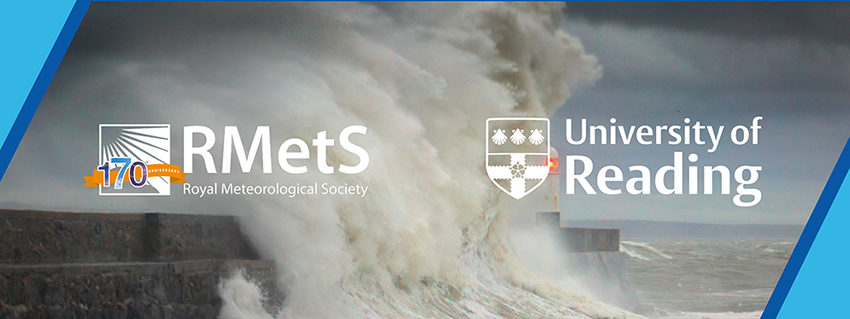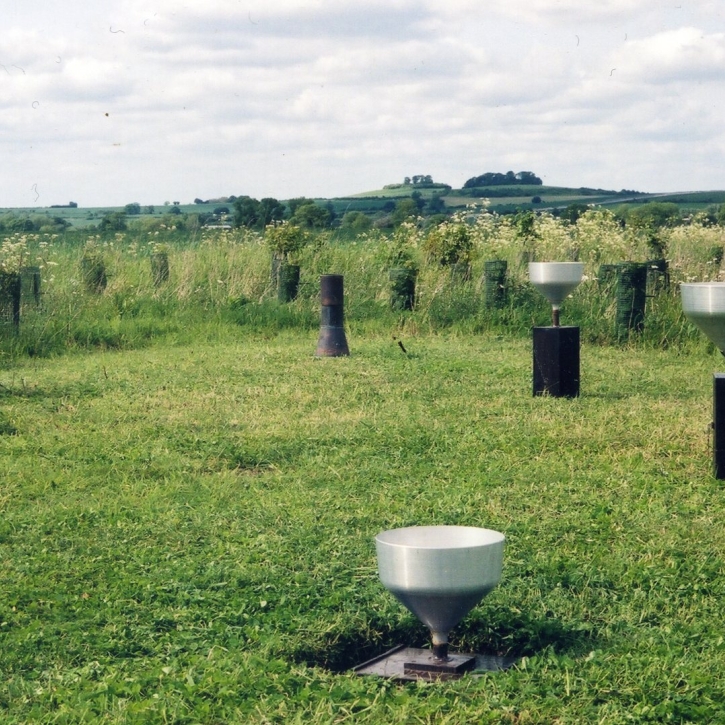

Masterclass Series: Synoptic storms in the North Atlantic
LOCATION
SPEAKER | Helen Dacre, University of Reading Professor Lecturer in Dynamical Meteorology
This session was part of our Masterclass Series: Winter Storms in European Weather and Climate in partnership with the University of Reading.
Winter storms are one of the main forecasting challenges for the UK and Europe, with many like those over the last winter season leading to significant loss of life and property. In this masterclass series, you had the opportunity to learn about current cutting-edge research on winter storms from three University of Reading experts.
The webinars were free of charge and was held from 3pm to 4.30pm with a presentation followed by the opportunity for questions and discussion with the speaker. Whilst the webinars are part of a series you can choose which to attend and attendance at all three is not compulsory.
In the first half of this seminar I will give a review of synoptic extratropical cyclone research starting from the skilfully constructed conceptual diagrams of the Bergen school in the 1920’s. Careful analysis of multiple surface observations allowed the Norwegian scientists to deduce the existence of cold and warm fronts and to characterise a complete cyclone lifecycle. Since then, new observing systems and advances in computational capabilities have enabled scientific research which has greatly expanded and enriched our knowledge of extratropical cyclone structure and evolution. In the second half of the seminar active areas of extratropical cyclone research, including analysis of sting jets, cyclone clustering and atmospheric rivers, will be presented. I will discuss the remaining gaps in our knowledge, particularly regarding synoptic and mesoscale features associated with moist processes and their influence on predictability.
Helen went to Sheffield University to do an integrated masters degree in physics with mathematics. After graduation, she joined the University of Reading and completed a PhD in the meteorology department on extratropical cyclones. Following her PhD, Helen undertook a couple of postdoctoral positions at Reading before managing to secure a five year Research Councils UK fellowship. She subsequently joined the meteorology department as a member of teaching staff in 2012. Shortly afterwards, in 2014, Helen obtained a Fulbright scholarship which allowed her to travel to the U.S. to study and perform research with scientists in other institutions on volcanic ash prediction. Returning to Reading, she became an Associate Professor in 2015. In 2019 she was awarded the RMetS FitzRoy prize for her research on volcanic ash clouds and their risk to aviation and in 2020 she became a full Professor. Helen’s research interests include the development of extratropical cyclones and their role in transporting moisture, as well as volcanic ash dispersion and its impact on aviation.
The webinars are free of charge and will be held from 3pm to 4.30pm with a presentation followed by the opportunity for questions and discussion with the speaker. Whilst the webinars are part of a series you can choose which to attend and attendance at all three is not compulsory.
Wednesday 30 September: The impact of climate change on winter storms
Len Shaffrey: University of Reading / NCAS Professor of Climate Science
Register here
Wednesday 14 October: Subseasonal predictions for European winter
Rob Lee: University of Reading / NCAS Research Scientist
Register here
SPEAKER | Helen Dacre, University of Reading Professor Lecturer in Dynamical Meteorology
This session was part of our Masterclass Series: Winter Storms in European Weather and Climate in partnership with the University of Reading.
Winter storms are one of the main forecasting challenges for the UK and Europe, with many like those over the last winter season leading to significant loss of life and property. In this masterclass series, you had the opportunity to learn about current cutting-edge research on winter storms from three University of Reading experts.
The webinars were free of charge and was held from 3pm to 4.30pm with a presentation followed by the opportunity for questions and discussion with the speaker. Whilst the webinars are part of a series you can choose which to attend and attendance at all three is not compulsory.
In the first half of this seminar I will give a review of synoptic extratropical cyclone research starting from the skilfully constructed conceptual diagrams of the Bergen school in the 1920’s. Careful analysis of multiple surface observations allowed the Norwegian scientists to deduce the existence of cold and warm fronts and to characterise a complete cyclone lifecycle. Since then, new observing systems and advances in computational capabilities have enabled scientific research which has greatly expanded and enriched our knowledge of extratropical cyclone structure and evolution. In the second half of the seminar active areas of extratropical cyclone research, including analysis of sting jets, cyclone clustering and atmospheric rivers, will be presented. I will discuss the remaining gaps in our knowledge, particularly regarding synoptic and mesoscale features associated with moist processes and their influence on predictability.
Helen went to Sheffield University to do an integrated masters degree in physics with mathematics. After graduation, she joined the University of Reading and completed a PhD in the meteorology department on extratropical cyclones. Following her PhD, Helen undertook a couple of postdoctoral positions at Reading before managing to secure a five year Research Councils UK fellowship. She subsequently joined the meteorology department as a member of teaching staff in 2012. Shortly afterwards, in 2014, Helen obtained a Fulbright scholarship which allowed her to travel to the U.S. to study and perform research with scientists in other institutions on volcanic ash prediction. Returning to Reading, she became an Associate Professor in 2015. In 2019 she was awarded the RMetS FitzRoy prize for her research on volcanic ash clouds and their risk to aviation and in 2020 she became a full Professor. Helen’s research interests include the development of extratropical cyclones and their role in transporting moisture, as well as volcanic ash dispersion and its impact on aviation.
The webinars are free of charge and will be held from 3pm to 4.30pm with a presentation followed by the opportunity for questions and discussion with the speaker. Whilst the webinars are part of a series you can choose which to attend and attendance at all three is not compulsory.
Wednesday 30 September: The impact of climate change on winter storms
Len Shaffrey: University of Reading / NCAS Professor of Climate Science
Register here
Wednesday 14 October: Subseasonal predictions for European winter
Rob Lee: University of Reading / NCAS Research Scientist
Register here





